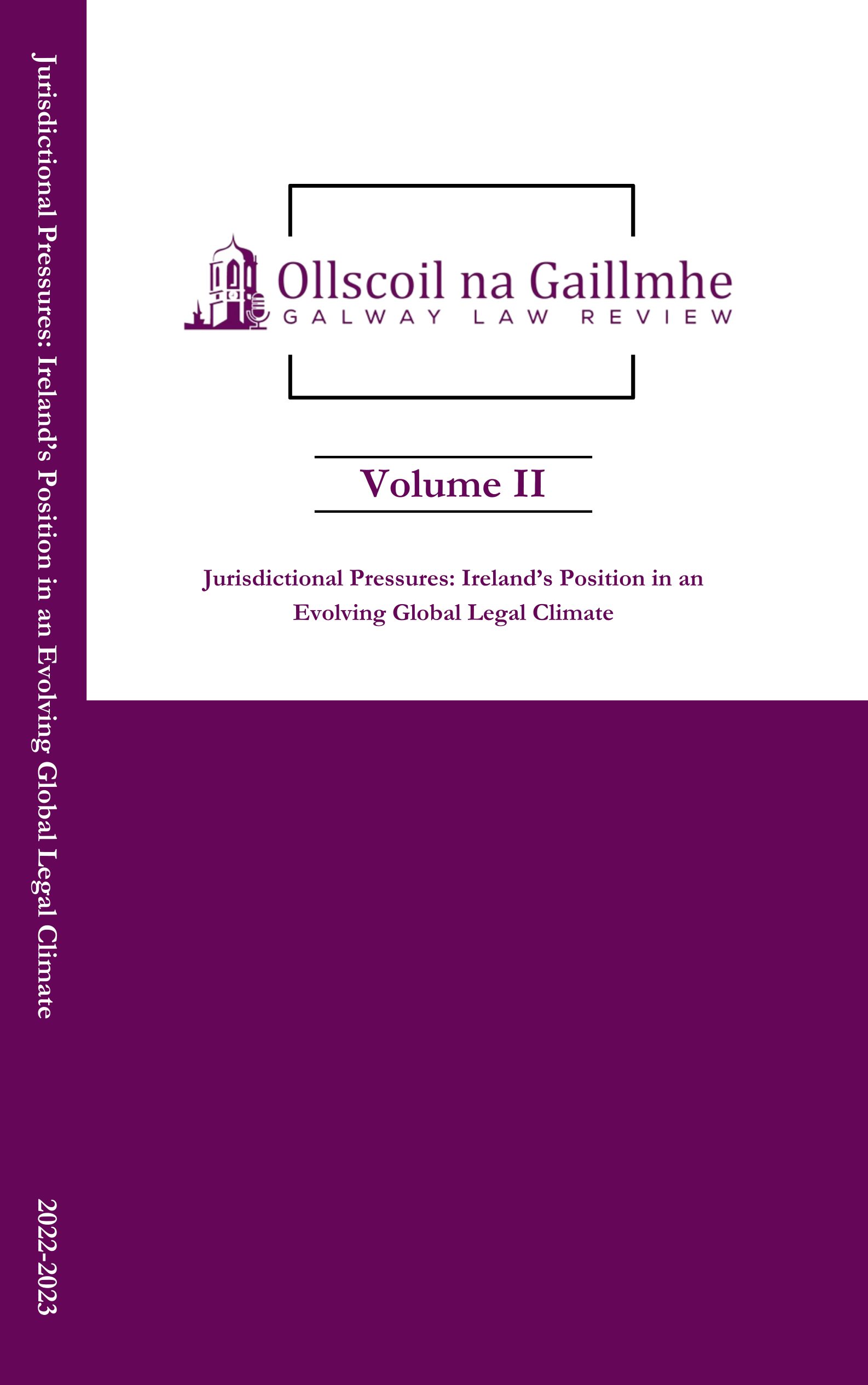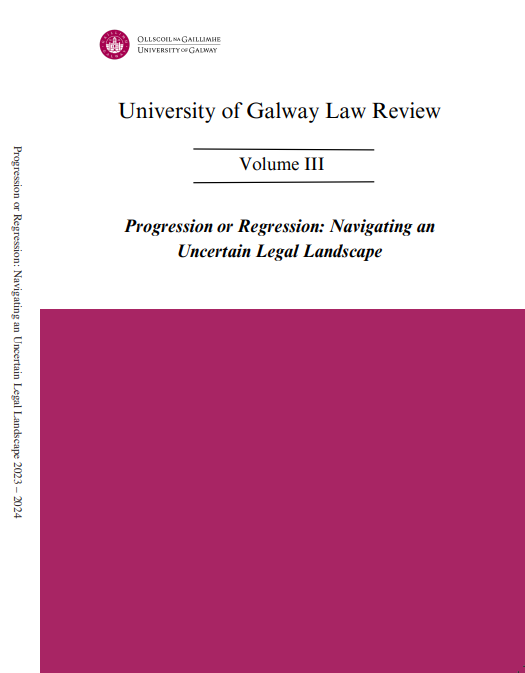Now Accepting Submissions for Volume IV
We are delighted to announce that the theme for this volume will be:
“Law as a Living Entity: Justice and Integrity in an Era of Change”
This volume’s theme provides a wide scope to write on many different areas of law. Submissions do not need to strictly align with the theme but a prize will be awarded for the best on-theme article.
Submissions are welcome on all areas of law and can be written in English, Irish, or French. Submissions should be in the OSCOLA style.
The deadline for submissions is the 24th of March, 2025, at 5 pm. Discretionary extensions may be granted in exceptional circumstances. Please ensure your work conforms to the word counts and styles as prescribed in the University of Galway Law Review House Style prior to being submitted to lawreview@universityofgalway.ie.
Guidelines
Eoghan Veerasingam
Editor -in-Chief, Volume IV
Anne White O’Brien
Editor -in-Chief, Volume IV
The following prizes are available for articles published in our 4th Edition:
The William Fry Prize for the Best On-Theme Article
Cash Prize: €250
The P. O’Connor & Son, Mayo, Prize for the Best Business Law Article
Cash prize: €250
The European Law Students’ Association, University of Galway, Prize for the Best European Affairs Article.
Cash Prize: €100
The winning article in this category could relate to any of the EU institutions.
The University of Galway Law Society, Prize for the Best Criminal Justice Article.
Cash Prize: €100
Vol. I is available to read here
This Volume tackles the issue of whether the law is capable of continuing to evolve on a case by case basis in a modern society that exists from the great legal minds of the past century, or does said society require a revolution of law.“In this first volume of the NUI Galway Law Review, some of the School’s current students present their scholarship on a range of issues of pressing legal concern: the place of religious belief within the legal system; gender-based domestic violence; matters of disability, gender, and unconscious bias; the jurisdiction of the International Criminal Court; freedom of expression; and various questions of jurisdiction and practice. The challenging issues at the heart of these topics are presented in a clear, thorough, and engaging fashion by their respective authors, producing a volume of scholarship which makes for an interesting and thought-provoking read.”
Professor Martin Hogg
Dean, University of Galway School of Law
Vol. II is available to read here
From gender recognition rights, to piercing the corporate veil, from EU competition law to restorative justice, this year's volume examines Ireland's position in the ever evolving global legal landscape. “Each of the articles in this issue of the Law Journal is a model of what top-quality academic scholarship should be. Each is clearly the product of painstaking research, close and perceptive analysis and deep reflection on how the law should develop. I extend my warmest congratulations to the authors, and also to the editors who have done such a splendid job in selecting articles for publication and editing them with manifest professionalism. The future of our legal system is in good hands.”
Professor Tom O’Malley, S.C.
Former Associate Professor of Law
Vol. III is available to read here
Receiving a record high number of submissions, this Volume critically examines the extent to which the law is progressing admist a background of uncertainity. Articles cover a wide array of topics stemming from complex criminal justice issues, to cross-jurisdictional developments, and more specific matters including modern legal drafting and langauge rights, along with many others.
“An editorial in The Irish Times on 28th September 2024 complained that “one of the cherished pillars of our legal system is impenetrability of language.” While the critique may be harsh, it is undeniable that our language, our law, our judgments and legal analysis has become incredibly complex. We are all too familiar with both court judgments and law review articles which are too long and some of which have been written in a dreary monotonous prose style which is sure to put off the reader. It is a pleasure to be able to say that this is not true of this volume of the University of Galway Law Review.”
The Hon. Mr. Justice Gerard Hogan
The Supreme Court of Ireland






